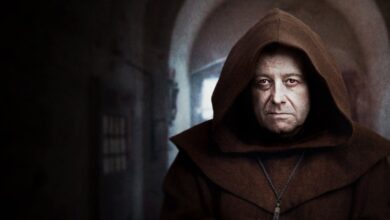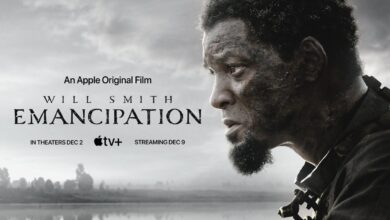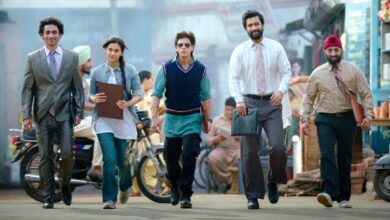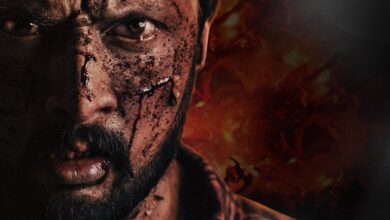Death On The Nile Review: Branagh’s Poirot Becomes More Somber, Modern And Personal
Cast: Gal Gadot, Ali Fazal, Kenneth Branagh, Armie Hammer, Emma Mackey, Tom Bateman, Letitia Wright
Director: Kenneth Branagh
Where To Watch: In Theaters (BookmyShow)
Filmyhype.com Ratings: 3.5/5 (three and half star)
The most surprised by the new Death On The Nile will probably be those who remember well the 1978 film with Angela Lansbury or the passionate readers of Agatha Christie’s 1937 novel. Surprises will not be lacking, with various substantial changes and a twist that seems written especially for them. From his first adaptation of Poirot Murder on the Orient Express Kenneth Branagh had made it clear that he was not interested in bringing a philological adaptation to the main source to the screen. Indeed, with a flicker of vanity not unrelated to the little Belgian detective, he had deformed his physicality and features by taking on the role in the first person. Tall, proportionate and with undeniable charm, the English director and actor has created a new Poirot, which from the first film we discovered to have a past love drama and a magnetic presence very different from his literary source.
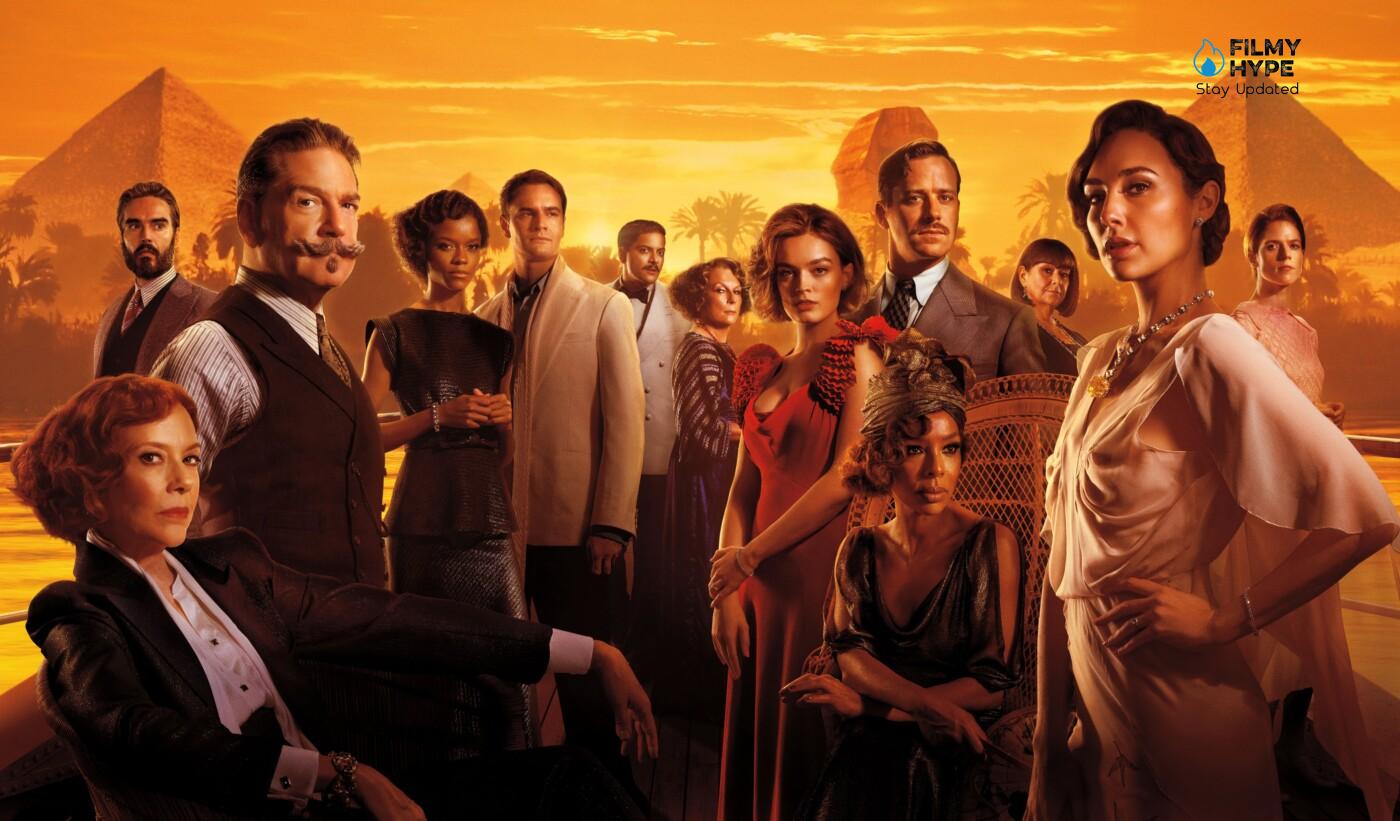
Death On The Nile Review: The Story
We follow the dramatic journey on the Nile of the newlyweds Linnet Ridgeway (Gal Gadot) and Simon Doyle (a very tanned Armie Hammer, probably in his last role after being swept away by a sex scandal). She inheritor of boundless financial fortune meets him, penniless and charming boyfriend of her friend Jacqueline de Bellefort (Emma Mackley of Sex Education). Passion breaks out between the two and just six weeks after Linnet and Simon get married. But Jacqueline is obsessed with Linnet and Simon’s betrayal and follows the couple everywhere. Her presence heightens Linnet’s distress that she knows how her heritage makes it difficult for her to understand who her true friends are.
Poirot will find himself aboard the ship Karnak, invited to the wedding and honeymoon by his friend Bouc (Tom Bateman): when the corpses start to appear and the diamonds to disappear, he will have to reveal the many secrets that the wedding guests present hide, looking for an unscrupulous killer.
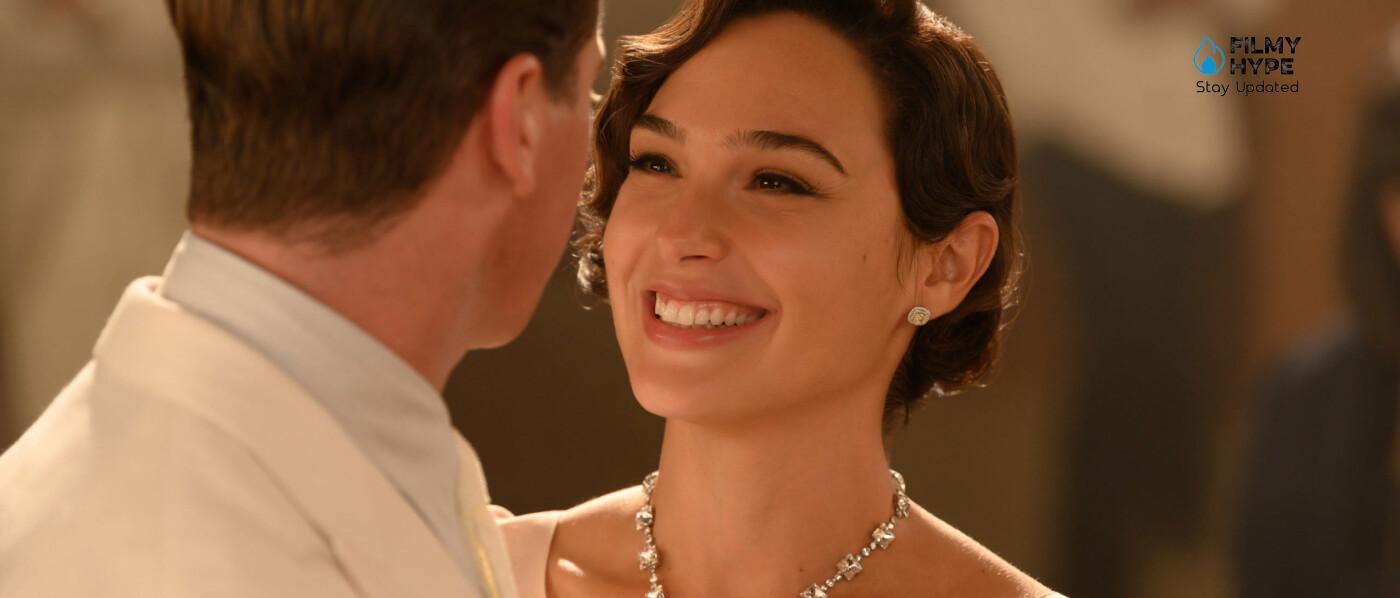
The case is therefore the same, but as already happened on board the Orient Express, Branagh introduces issues strictly related to current events. Two examples: the character of Salome Otterbourn and (originally played by Angela Lasbury, here by Sophie Okonedo) loses its ridiculous connotation and becomes a black blues singer who knows how to defend herself, accompanied by her daughter Rosalie (Letitia Wright), the only one trusted friend of Linnet. Both are smart and intelligent women who have had to deal with racism in their lives.
Other characters bring the theme of homosexuality into the film, which here and there takes a more cautious position with respect to the wasteful and luxurious society in which most of the rich protagonists live. The central focus of the film, however, is love : sincere, sick, deadly, a focus from which Poirot is far from exempt. The film puts into the mouths of its protagonists obsessive litanies on how much and how they love whom, losing a little in naturalness.
Death On The Nile Review and Analysis
Not that there is much spontaneous and realistic in this film: from the Egyptian landscapes created in CGI to the shots so insisted on giving dynamism that they are sometimes pretentious, Branagh’s is a very studied effort, which has very little genuine. The pomp of the sets (the Karnak ship, the Cataroach hotel) and the sensual, sparkling and luxurious costumes made by Paco Delgado are the masters. On the other hand, this genre of murder mystery is known for the luxurious packaging with which it is presented to the public: everything is sparkling, from the sets to the cast full of beautiful Hollywood stars.
In this case, the focus was more on attractiveness than on acting: the ensemble is truly glamorous, but the general acting rehearsal is often artificial and insistent (I think of Gal Gadot but also of Emma Mackley who tries very hard to keep an angry frown ). Not even Branagh himself shines, though he reserves many important scenes for himself and his detective. It is interesting to note how the director, who in Belfast (due out in a few weeks) brings out masterful performances even to the most unsuspected members of his cast, here struggles to keep the pace throughout the first half of the film, finding the right gear only in the second part.
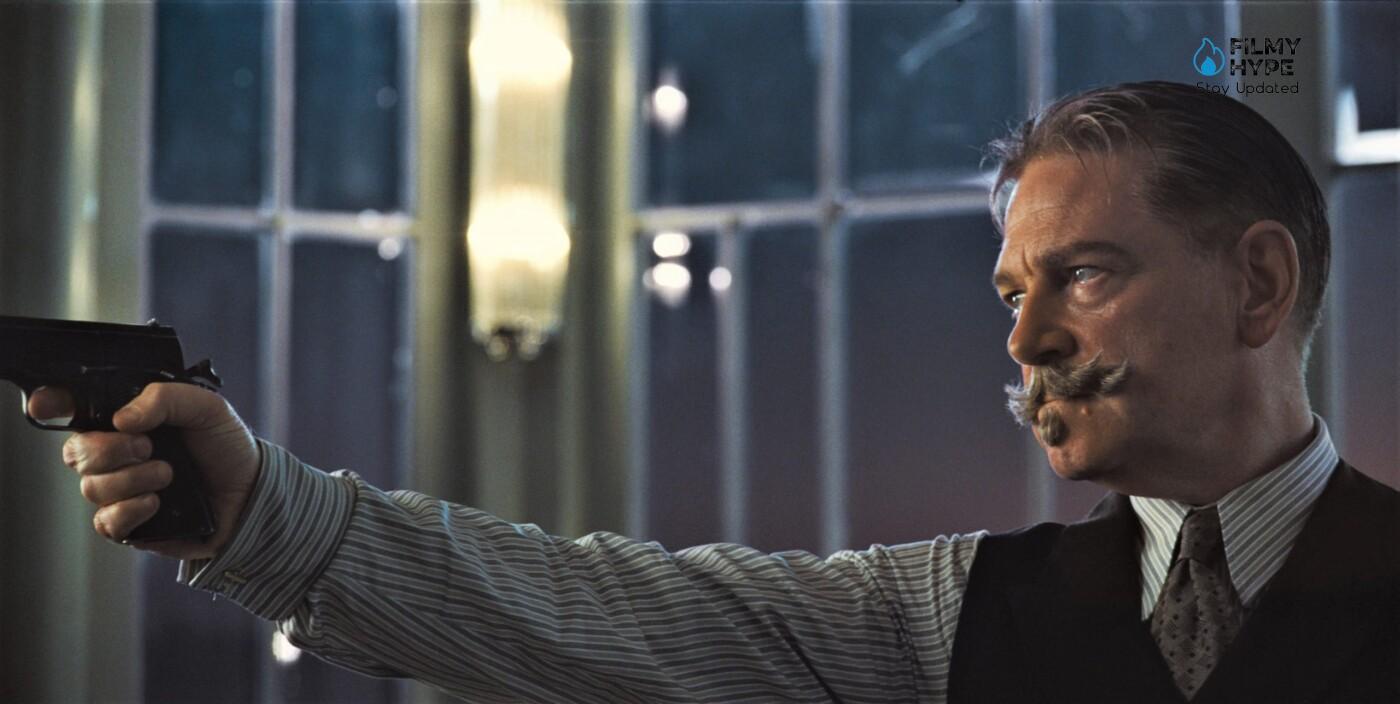
It must be recognized that in 127 minutes Branagh unravels a plot full of characters and very complex, whereas now the minutes sail around two hours and twenty for a film of the genre. The impression, however, is that it is a project that Branagh fulfills as a work commitment rather than with genuine passion, maximizing his presence and his economic advantage. Once again we find an invasive and execrable use of product placements. The yellow diamond exhibited by Gal Gadot is among the few authentic things seen in the film, but like the Godiva chocolate in the first chapter, it comes with the Tiffany label on it. The impression is that often the film lingers like a commercial on the jewels worn by the protagonists, rather than on the plot.
Compared to the debacle of the first film – which in any case went very well at the Italian box office – here the operation conducted in Branagh proves to be more courageous, more incisive. It is destined not to please everyone (and above all to irritate the purists) but the desire to shoot in 70 mm film, the decision to abandon the cheerful tone of the original to immerse yourself in a post-war and leaden atmosphere, testify that, while it is a task, Branagh fulfills it by taking some risks and giving his audience a good show. It should be enough.
Death On The Nile Review: The Last Words
Death On The Nile is pure and enjoyable entertainment supported by an excellent cast and a good dose of tension, a compelling tale of the consequences of the lowest instincts, of the human miseries that only writers like Agata Christie have been able to tell and that Kenneth Branagh manages to represent. With consistency and passion on the big screen Branagh gets personal with Poirot, rewriting Agatha Christie’s detective (and the movie case) with an eye for modern sensibility and with substantial modifications more convincing than the first.



